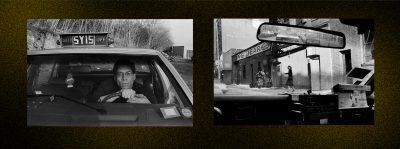Fiction: Where Will All The Buildings Go?



Ellen goes outside. It’s October and the temperature is already turning against her. She suspects the girl belongs to the boarding school down the road, where her husband teaches history, but it’s hard to know for sure because the students don’t wear uniforms, which seems to Ellen like the mark of true eliteness: to be so elite that you do not need to announce your eliteness. People are supposed to just look at you and know.
“Hey you,” Ellen says.
The girl spins around. A black daisy head is clenched in her fist. She’s in jeans and a red windbreaker, the school’s logo printed on her chest.
“I didn’t think anyone was home,” she says.
“I’m somebody and I’m home.” Ellen is still in her cotton pajamas and slippers, even though it’s past noon. “Shouldn’t you be in school?”
“No one there is who they say they are,” the girl says, letting go of the daisy.
“Watch it,” Ellen says. “My husband works there.”
She is only sticking up for him, for his school, in order to have something to say.
The girl ends up coming inside. Ellen isn’t quite sure how this happens. She does not ask the girl in and the girl does not ask to be let in; she just follows Ellen through the front door.
“I’m hungry,” she announces in Ellen’s foyer.
“Can’t you go to the cafeteria?”
“I hate the cafeteria.” Her eyes are green and round. They sit deep in her skull, turning her expression watchful and wary in a way that reminds Ellen of the alligators that lurked in the wetlands of her youth. This far north, she is a long way from home.
She steps back and looks at the girl. The insides of her palms are streaked with the guts of daisies.
“You have a point about the cafeteria,” she says.
The girl trails her into the kitchen. Ellen starts opening cabinet doors and assembling ingredients for an omelet. A carton of brown eggs. The green tips of scallions. A block of cheddar. Black pepper. Normally Ellen can’t cook to save her life, but she can make a blue ribbon omelet.


The girl’s name is Ursula. She is a sophomore at the school. The second time she comes to the house, she once again winds up in the kitchen, eating an omelet with a spoon. Forks are too sharp, she explains to Ellen, like tiny weapons with those tines.
“Can I move into your basement?” Ursula looks up from her plate.
“What?” Ellen is scrubbing a frying pan in the sink, her fingers pruned from the water.
“I would only use it for sleeping,” the girl says, as though that should make a difference.
“You have a perfectly nice place to sleep already.” She turns off the water and puts the pan in the dishwasher instead, knowing her husband will look in there and be pleased, thinking she fed herself today.
“I already told you I don’t like it there.” Her face turns sad and pinched, but she doesn’t stop eating.
“What do your parents say about you not liking it?”
“They don’t say.”
Ellen knows she should call her husband and tell him what’s going on. One of their students is talking about sleeping in basements! She picks up the phone and steps into the hallway. She stands out there for a minute, turning the phone over in her hands.
Back in the kitchen, the little TV that sits on the counter is turned to the news. A broadcaster is talking about the new planet scientists have discovered. It emerged from a cloud of dust and gas. One day it will be bigger than Jupiter. It lives hundreds of light years away.
“What’s your favorite subject?” she asks the girl.
“Art,” Ursula says. “I’m going to be famous.”
“For your art?”
“I’ll be famous for something,” she says.
You might also like 



















